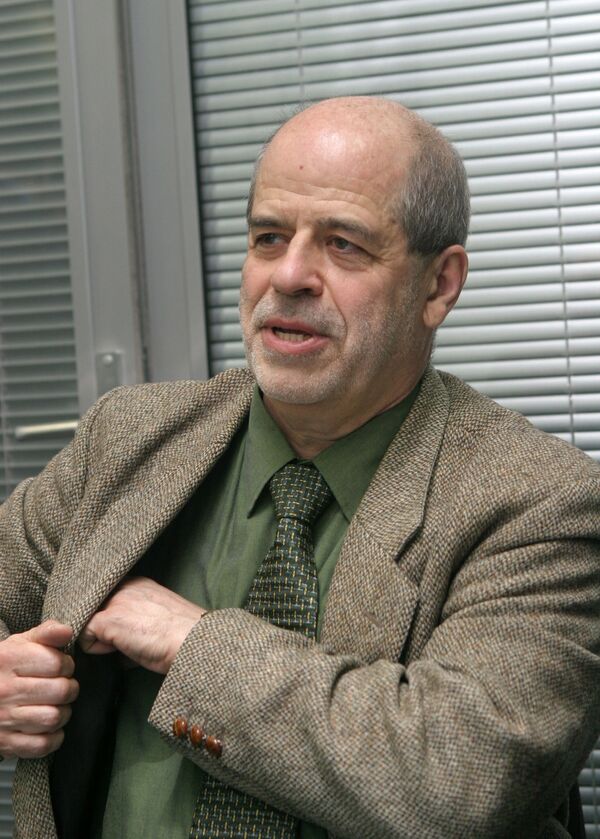Professor Vitaly Naumkin, the director of the Russian Academy of Sciences’ Institute of Oriental Studies, speaks about his expectations of “The Modern State: Standards of Democracy and Criteria of Efficiency” Global Policy Forum, which will open in Yaroslavl in Russia next month.
Can you tell us about the agenda of the second Global Policy Forum and the key issues to be discussed at it?
The second Global Policy Forum could become a very important political event for Russia, it suffices to say that the leaders of several major economies plan to attend it.
The forum participants will discuss the standards of democracy, the criteria by which the efficiency of modern states is judged and economic modernization. Various aspects of democracy were also discussed at the first forum. This year it should be stressed once again – many Russian participants pointed to this at the first forum – that the form democracy takes in each individual state, although based on universal principles such as elections, the division of powers and supremacy of the law, should complement that particular country’s historical and cultural experience.
In Russia democratic principles should take into account its federative structure and multinational composition, which directly leads to the idea of creating a strong state. A strong state is not necessarily a non-democratic one and it could even promote democratic development.
On the other hand, Russia’s vast size and scattered population make government more difficult, create the need for special mutually adaptive mechanisms, and influence democracy’s development.
Russia’s vast territory and long borders raise a security question. In terms of security, Russia is a unique player on the world scene. It is involved in European structures, which will be discussed by a special inter-branch panel at the forum, as well as in Asia Pacific, the Middle East, Central Asia and the Caucasus.
When we speak about the territory from Vancouver to Vladivostok, we usually mentally plot a route stretching across the Atlantic and Europe, although the distance between Vancouver and Vladivostok is much shorter across the Pacific Ocean.
From both the economic and security perspectives, the Asia Pacific space is highly promising for Russia, itself part of the Islamic world. There are 20 million Muslims in Russia and its future depends on how at ease they feel and on the government’s ability to contribute to the century-long experience of peaceful coexistence of Christians and Muslims.
In this sense, Russia could become an example for other countries, in particular in view of the current tensions between the West and the Islamic world. As an academic specializing in Oriental studies, I have delved deep into this problem and think that it should also be discussed.
I expect the second forum to yield practical proposals and generate new ideas and I think that scientific or academic conferences are better suited to the discussion of narrow theoretical questions.
Can you describe the forum’s format?
There will be four sections to the forum: The State as an Instrument of Technological Modernization; Standards of Democracy and the Diversity of Democratic Experiences; New Challenges and the Concept of International Law; and Regional Systems of Global Security.
Regional and global security systems, including the European security pact proposed by President Dmitry Medvedev, will be discussed at an inter-branch panel.
The section titles show that the forum will highlight democracy and modernization.
Why will the second forum pay less attention to security questions compared to the first one?
The questions of security have not become less acute and will be discussed at the second forum but it can’t focus on exactly the same question year after year. The focus should change, but the general list of problems still concerns the current nature of national statehood. The list includes issues of the efficiency of a modern state, democracy, ways to ensure people’s prosperity and security, the world order and methods and organizations that should maintain it.
The recent global economic crisis, the new challenges created by an increasing number of new players on the global political scene, militarization, extremism and terrorism, as well as natural disasters and poverty have not overshadowed the question of security.
What results do you expect from discussions at the forum?
I think the discussions will be heated, but they must above all be constructive. Debates must not just see people reiterating their positions, but rather should foster awareness of the grave challenges faced today and reveal ways of dealing with them while respecting each other’s interests, without endangering the lives of one’s own and other peoples.
Many countries, including large global players, are coming to see that they should also respect other people’s interests. The easing of confrontation with the United States after years of tension is a good sign. The new climate in bilateral relations may have a positive effect on the upcoming discussions.
The opinions expressed in this article are the author's and do not necessarily represent those of RIA Novosti.



